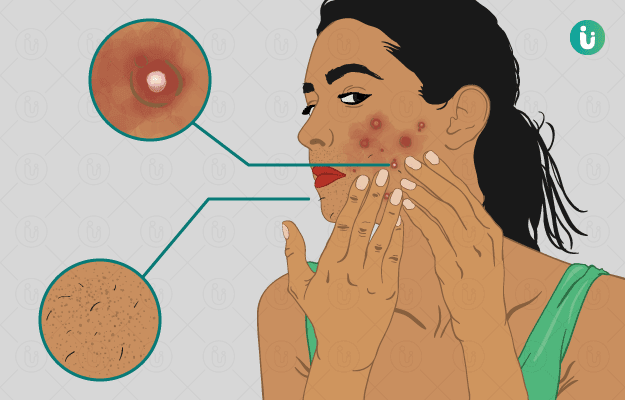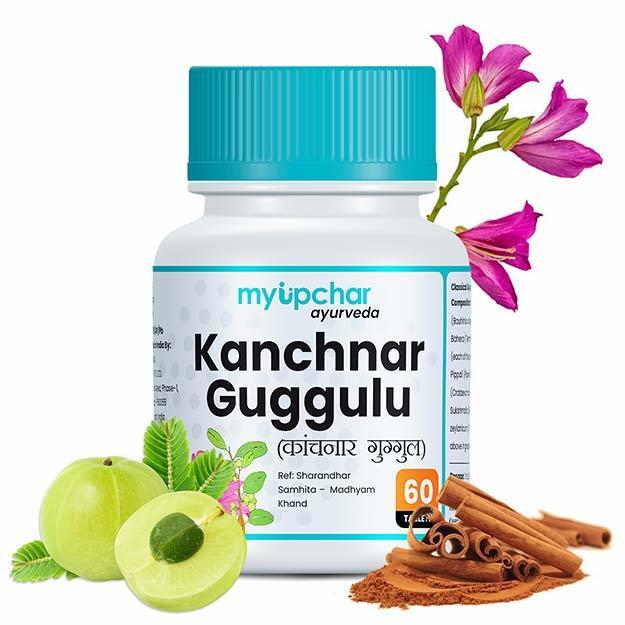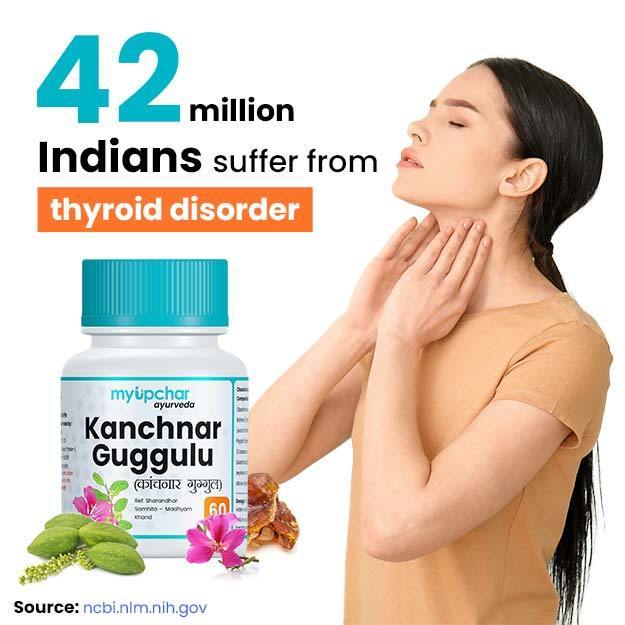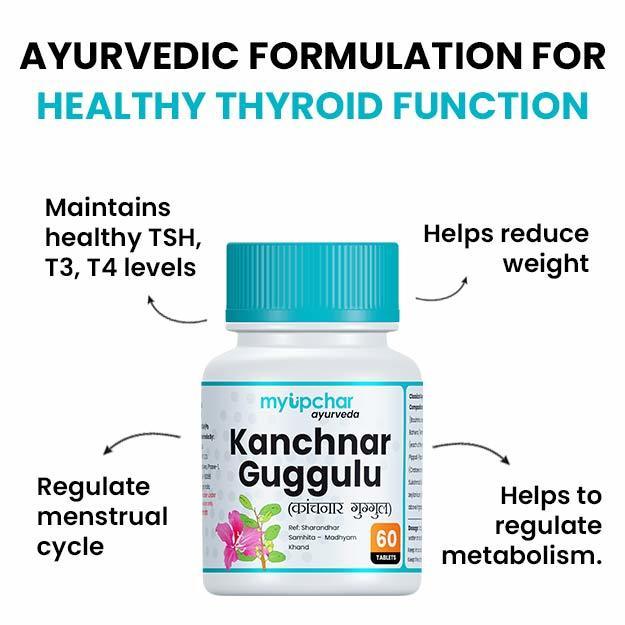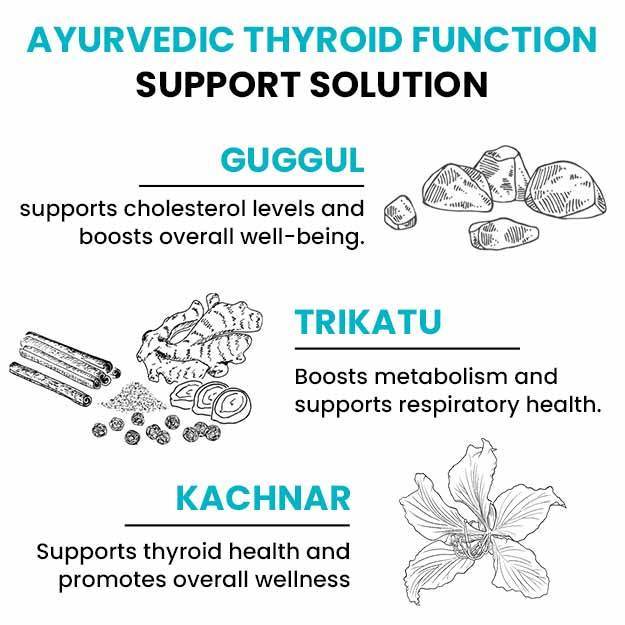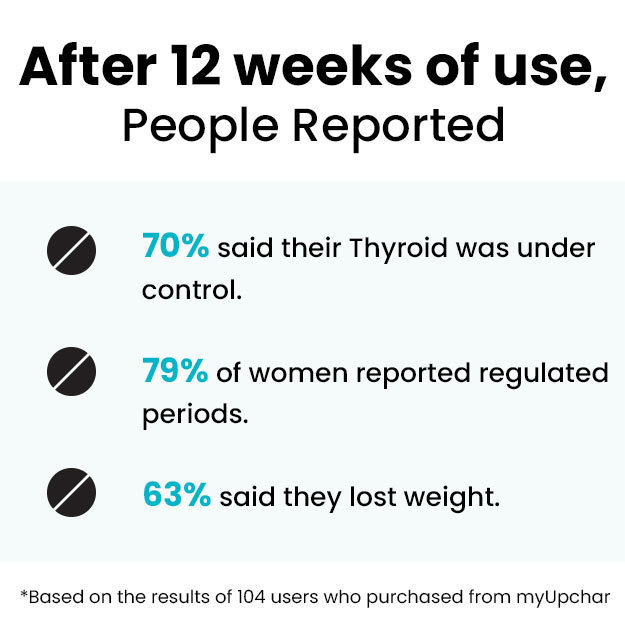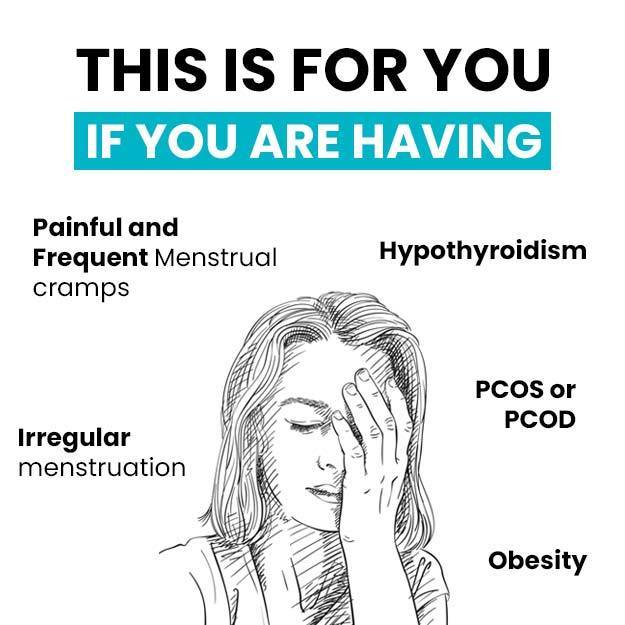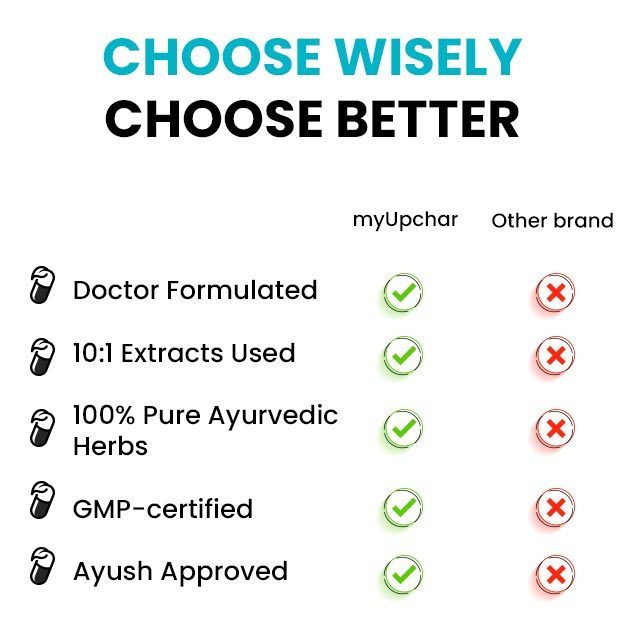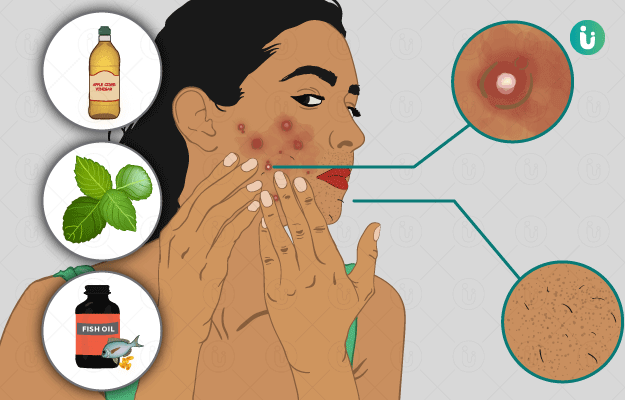Polycystic ovary syndrome (PCOS) is a common hormonal, metabolic and reproductive disorder seen in women. The condition affects all women of reproductive age and is characterised by the production of multiple fluid-filled sacs called cysts in one or both the ovaries, irregular periods and increased male hormones. As per a cross-sectional study conducted in a city in India, PCOS has a prevalence of 22.5% in adolescent and young girls in the country.
Hormonal imbalance and a hampered metabolism are observed in women with PCOS, which affects their overall health and appearance. Common symptoms of PCOS include irregular periods or complete absence of periods; excessive facial hair and hair on parts of the body where women generally do not have hair growth; oily skin; acne on the face, upper back and chest; skin darkening, especially along the neck creases, under the breasts, and in the groin; hair thinning; small flaps of excess skin in the neck or armpits called skin tags; and weight gain with difficulty in losing weight.
Although the exact cause of PCOS is unclear, numerous factors, including genetics, may be involved. Increased levels of hormones called androgens (e.g. testosterone) in women with PCOS may interfere with the release of eggs from the ovaries during the menses and cause growth of excess hair and acne. Increased levels of insulin in the blood due to insulin resistance also increases the risk of diabetes mellitus in women with PCOS and affects the breakdown of food into energy, causing weight gain.
Diagnosis involves the physician taking your medical history and conducting a physical examination, blood tests for detection of hormonal levels, and an ultrasound scan of the pelvis. Although PCOS is a common cause of infertility and is treatable, there is no cure for it. Your doctor can help you manage PCOS by creating a treatment plan depending on your risk for health issues such as diabetes, your plans for having a child, and your symptoms.
Numerous published research documents indicate the significance of homeopathy in the management of PCOS and its associated symptoms. Homeopathic remedies such as pulsatilla, lycopodium and Calcarea carbonica, among others, can help manage the condition and prevent complications such as infertility.
- Homeopathic medicines for polycystic ovary syndrome
- Dietary and lifestyle changes for a patient with polycystic ovary syndrome
- How effective are homeopathic medicines and treatments for polycystic ovary syndrome
- Side effects and risks of homeopathic treatment and remedies for polycystic ovary syndrome
- Takeaway
Homeopathic medicines for polycystic ovary syndrome
-
Apis Mellifica
Common Name: The honey-bee
Symptoms: Patients who benefit from this remedy have some of the following signs and symptoms:- Inflammation of ovaries with severe pain, especially in the right ovary
- Tumours in ovaries
- Irregular periods
- Suppressed menses
- Vertigo and feeling of tiredness in the brain
- Pain in arms and legs
- Back pain
- Swelling in the genitals in females, which usually subsides with cold water
- Heaviness and pain in the abdomen
- Tenderness in the region of the uterus and the abdomen
Spending time in open-air and bathing in cold water can be useful in the management of these symptoms.
-
Natrium muriaticum
Common Name: Chloride of sodium
Symptoms: This remedy is mainly useful in individuals with great weakness and weariness with most of the weakness felt in the morning in the bed. Individuals for whom this remedy is beneficial have some of the following symptoms:- Irregular periods with usually profuse bleeding
- White, watery discharge
- Dry vagina
- Pain in the abdominal region that worsens in the morning
- Prolapse of the uterus (slipping down from its position)
- Back pain and a desire to support the back
Mental exertion causes worsening of the symptoms. Open-air, cold bathing, lying on the right side and putting pressure against the back can help in managing these symptoms.
-
Sepia officinalis
Common Name: Inky juice of cuttlefish
Symptoms: Sepia officinalis is one of the best known homeopathic remedies for treating disorders associated with the uterus. It is useful in the management of the following symptoms:- Hot flashes at menopause along with excessive sweating and weakness
- Pain that extends down into the back
- Yellow greenish discharge through the vagina along with itching
- Too late, scanty and irregular menses
- Sharp, clutching pain during menses
- Nausea in the morning on an empty stomach
- Pain in the vaginal region
- Prolapse of the uterus and vagina
-
Calcarea Carbonica
Common Name: Carbonate of lime
Symptoms: This remedy is useful in individuals with the following symptoms:- Problems due to impaired nutrition
- Swelling in various glands
- A jaded mental or physical state due to overwork
- Old sprains and swelling of the joints
- Pain in the lower back and fat accumulation in the abdomen
- White discharge, abdominal pain, feeling cold and headache before periods
- Burning sensation and itchiness in the groin before and after menses
- Tenderness and swelling of breasts before menses
- Excessive sweating in the external genital region
- Toothache and vertigo during periods
- Menses are early and prolonged with excessive bleeding
- Cold and clammy feet and complaints that get worse in cold weather or with the slightest mental or physical excitement
Dry weather and lying on the painful side can be useful in combination with calcarea carbonica to manage the symptoms.
A case report published in 2018 indicated the effectiveness of calcarea carbonica along with dietary modifications and regular exercise in the management of PCOS. The duration of the treatment was 1.5 years, and none of the volunteers experienced a recurrence of the condition.
-
Lachesis Mutus
Common Name: Bushmaster or Surucucu snake poison
Symptoms: This remedy is particularly useful at the beginning and end of menses. It is suitable for women who have some of the following symptoms:- Inflammation of the breasts with a bluish discolouration
- Pain, swelling and hardness in the left ovary
- Pain in the lowest portion of the back, particularly while getting up from the seated position
- A tendency to bleed easily
- Inability to bear the pressure of tight clothing, especially around the neck
- Scanty periods
- Waves of pain in the head and vertigo, which are relieved by the starting of menses
- Sensitive and painful abdomen
- Lycopodium Clavatum
Common Name: Club moss
Symptoms: Patients who benefit from this remedy are typically older, have complaints in the right ovary and experience the following symptoms:- Delayed menses with profuse bleeding that last for a longer time
- White discharge and burning sensation in the vagina
- Pain in right ovarian region
- Blood discharge from the vagina while passing stools
- Distended and bloated abdomen
- Diarrhoea
- Pain in the lower back
- Excessive urination especially during the night
- Disturbance in liver function with fluid collection in the abdomen and sensitivity of the liver
- Increased appetite
Complaints worsen in the evenings between 4 pm and 8 pm. Warm food and drinks make the throat and stomach feel better.
-
Bryonia Alba
Common Name: Wild hops
Symptoms: Bryonia alba is mainly useful in managing stitching and tearing pain in any muscle. It is beneficial in individuals with the following symptoms:- Early periods with profuse bleeding
- Irregular periods with symptoms associated with the stomach
- Tearing pain in the legs which worsens with motion
- Stitching pain in the ovarian region while breathing in
- Severe pain in the right ovary as if torn; this pain extends to the thigh
- Breast pain during periods
- Hot and painfully hard breasts
- Pain between two periods with soreness in the pelvis and abdomen
- Frequent bleeding of the nose just before periods
- Pain in the back, mainly due to change in the weather
-
Pulsatilla Pratensis
Common Name: Wind flower
Symptoms: Wind flower is primarily a female remedy, useful in women who are mild, gentle and yielding in nature. They have some of the following signs and experience:- Absence of periods or missing periods; missing periods is generally due to wetting of the feet
- Scanty or late periods
- Bleeding during menses is generally clotted, thick and varies between menses
- Chilliness, nausea and pain during menses
- Pressure in the pubic region and downwards
- Shooting pain in the back, especially while sitting
- Loose motions during and after menses
- Creamy white discharge from the vagina along with a burning sensation
- Lack of thirst and dryness of mouth
The patient seeks open air and feels better on going out in the open. Fatty meals may worsen these symptoms and should hence be avoided.
Dietary and lifestyle changes for a patient with polycystic ovary syndrome
Do’s:
- Opt for a healthy and balanced diet and take proper rest.
- The patient's cravings for certain things (foods and drinks) should be fulfilled during severe episodes of pain as it will help the person feel better.
- Maintain and follow a schedule for taking homeopathic remedies. Lachesis should be consumed at onset or just at the end of menses, or as directed by the homeopathic physician.
Don’ts:
- Numerous food items such as coffee, herbal teas and spices, with strong aromatic odours, have medicinal properties and may interfere with the effects of homeopathic medicines. Avoid consuming these food items while you are on a homeopathic treatment.
- Do not follow a sedentary lifestyle.
- Do not store homeopathic medicines in areas directly exposed to sunlight or near substances with a strong odour as the medicines may be inactivated by these.
How effective are homeopathic medicines and treatments for polycystic ovary syndrome
Homeopathy can help in treating PCOS by focusing on both the psychological and physical wellbeing of an individual. Homeopathic treatment of PCOS involves constitutional remedies based on all the symptoms. It cost-effectively provides holistic therapy without any side effects that are generally associated with conventional therapies such as steroid consumption and surgical procedures.
The relapse rate of PCOS with homeopathic remedies, when taken along with lifestyle modification, has been shown to be very low, with no complications in the future. Based on the detailed clinical status of the affected women, homeopathic remedies like calcarea carbonica, sepia, lycopodium, phosphorus, sulphur, pulsatilla, borax, graphites, apis mellifica, oophorinum, natrium muriaticum, lachesis, lac caninum, bryonia alba and aurum muriaticum natronatum, have been found to be effective in the management of PCOS and its associated symptoms.
In a clinical study conducted to determine whether homeopathic medicines affected the regulation of menstrual cycle, calcarea carbonica, pulsatilla, natrium muriaticum, lycopodium, phosphorus, borax, graphites and sepia were shown to be effective in women with irregular menses and acne, and an ultrasound image indicating PCOS.
Another pilot study demonstrated the usefulness of homeopathic remedies in combination with lifestyle changes to manage PCOS and improve the overall quality of life in a group of 30 women.
Side effects and risks of homeopathic treatment and remedies for polycystic ovary syndrome
Homeopathy is considered to be a safe treatment method as long as they are taken under the guidance of an experienced medical practitioner. No available data suggests any side effects associated with these medicines.
However, not every remedy suits every person well and when taken in the wrong amount they may lead to side effects. So, it is best to consult a homeopathic doctor before taking any of these medicines.
Takeaway
PCOS is a hormonal problem in which a woman has multiple fluid-filled cysts in her ovaries. The condition increases the risk of conditions like diabetes and infertility.
Homeopathy is considered to be a safe and effective treatment for PCOS when taken along with a healthy lifestyle and balanced diet. Several studies indicate the benefits of homeopathic remedies in the treatment of PCOS.
Make sure to consult an experienced homeopathic doctor before taking any remedy.

